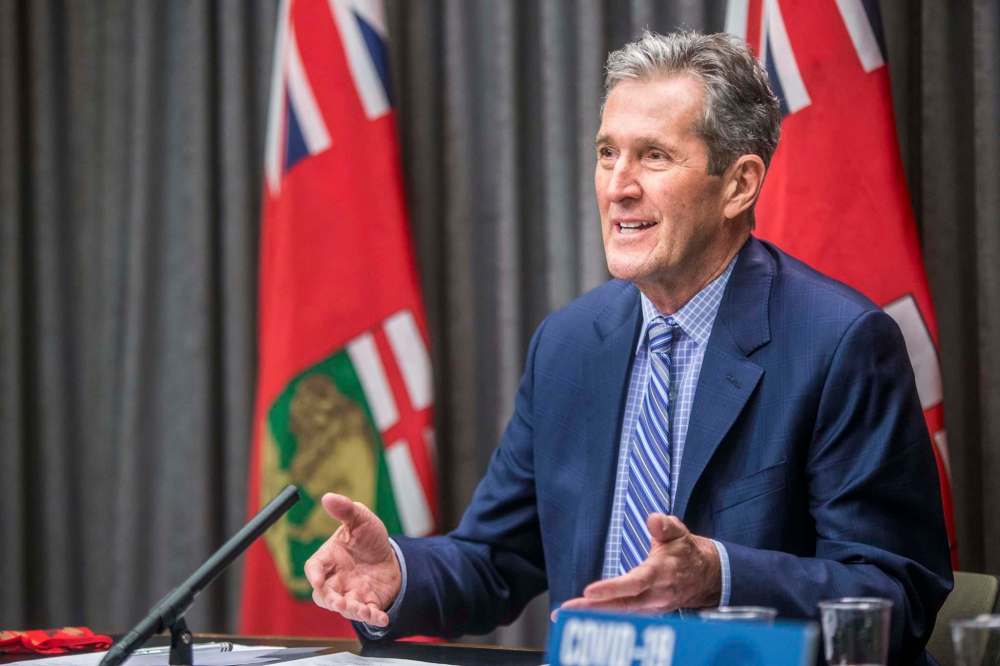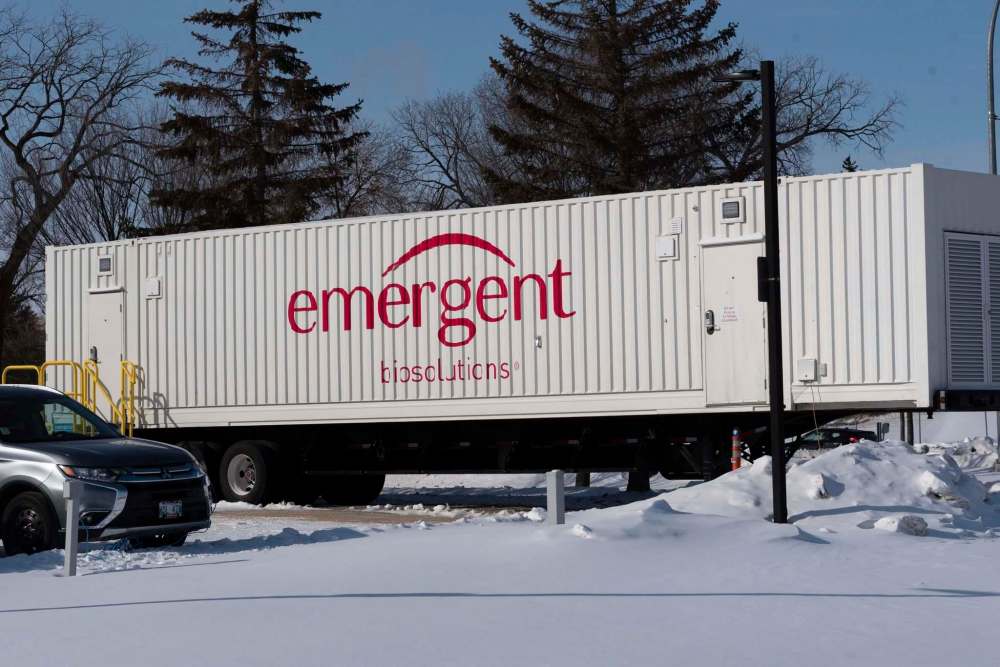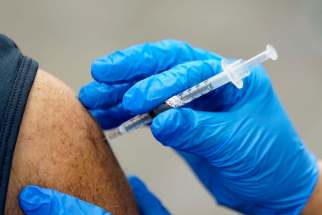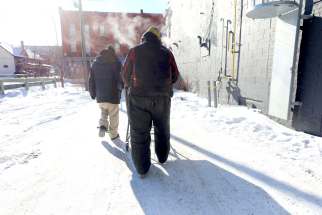Manitoba move to secure own vaccine supply ‘a political statement’: expert
Read this article for free:
or
Already have an account? Log in here »
To continue reading, please subscribe:
Monthly Digital Subscription
$0 for the first 4 weeks*
- Enjoy unlimited reading on winnipegfreepress.com
- Read the E-Edition, our digital replica newspaper
- Access News Break, our award-winning app
- Play interactive puzzles
*No charge for 4 weeks then price increases to the regular rate of $19.00 plus GST every four weeks. Offer available to new and qualified returning subscribers only. Cancel any time.
Monthly Digital Subscription
$4.75/week*
- Enjoy unlimited reading on winnipegfreepress.com
- Read the E-Edition, our digital replica newspaper
- Access News Break, our award-winning app
- Play interactive puzzles
*Billed as $19 plus GST every four weeks. Cancel any time.
To continue reading, please subscribe:
Add Free Press access to your Brandon Sun subscription for only an additional
$1 for the first 4 weeks*
*Your next subscription payment will increase by $1.00 and you will be charged $16.99 plus GST for four weeks. After four weeks, your payment will increase to $23.99 plus GST every four weeks.
Read unlimited articles for free today:
or
Already have an account? Log in here »
Hey there, time traveller!
This article was published 12/02/2021 (1760 days ago), so information in it may no longer be current.
Manitoba’s decision to sign a deal with a prospective COVID-19 vaccine developer shows Canada’s national strategy to be a “complete and utter failure,” an expert on global pharmaceutical policies says.
Jillian Kohler, a professor in the faculty of pharmacy at the University of Toronto, said the pandemic has placed Canada in a “desperate situation,” where it is dependent upon large pharmaceutical companies and other countries for life-saving drugs.
“We need to have our own sovereignty when it comes to essential medical supplies. We cannot be at the mercy of other countries — and that’s exactly where we are. We are in a really, really difficult place,” she said in an interview.
On Thursday, Premier Brian Pallister announced an agreement to purchase two million doses of a yet-to-be-approved vaccine from Calgary-based Providence Therapeutics.

The messenger RNA vaccine, similar to approved products developed by Pfizer-BioNTech and Moderna, is only in the first of a three-stage clinical trial process. While the company and the province say the prospective vaccine could be approved as early as fall, some experts believe that’s an optimistic timeline.
Kohler, who worked for more than 15 years on global pharmaceutical policy for a number of United Nations organizations, said she welcomes any pressure that can now be brought to bear on the Trudeau government to secure necessary supplies.
“This, to me, is a political statement,” she said of the Manitoba government’s decision. “This is just demonstrating that the federal government has failed to make Canadians feel secure in getting their vaccines.”
One COVID-19 vaccine tracking agency this week ranked Canada in 38th place in the world at getting jabs in arms, which Kohler calls “appalling.”

Canada’s ranking has slipped in recent days as vaccine shipments from overseas manufacturers have been delayed.
Every single day matters in the fight against the novel coronavirus, Kohler said. “Lives are being lost and people are getting sick and hospitals are being stretched beyond capacity.”
The U of T academic, who has researched the impact of nationalism on vaccine supplies, said she was concerned about one aspect of the province’s announcement Thursday. She noted Manitoba was assured of receiving the first 200,000 doses produced by a newly licensed Providence product.
“It looks like Manitobans first, and then (other) Canadians,” she said. “That is a very worrisome trend.”
Jason Kindrachuk, a University of Manitoba virologist, said while it’s unknown whether a Providence dose can be developed on time to be a factor in this year’s COVID-19 vaccination program, the province’s decision could have benefits down the road.
“I think it puts Manitoba in a potentially good position for moving forward for the next public health crises that come down the pike, because there would be additional manufacturing capacity,” he said. “And that’s certainly what we need in Canada.”
“It looks like Manitobans first, and then (other) Canadians. That is a very worrisome trend.” – Jillian Kohler
Meanwhile, Manitoba Liberal Leader Dougald Lamont wrote a letter Friday to the province’s auditor general, Tyson Shtykalo, expressing several concerns with the deal and asking the AG’s office to investigate.
Lamont said the agreement commits Manitoba to spending millions of dollars up front for an unproven product when the Canadian government has already procured “approximately 400 million vaccine doses from multiple companies and candidates.”
The deal with Providence calls for the province to make a downpayment of 20 per cent of the contract’s value, and pay an additional 40 per cent once the vaccine is approved by Health Canada. The rest of the money is to flow upon the final delivery of orders.
“Providence has yet to ever complete a human trial of any kind for any of the products it has planned,” Lamont said in his letter.
Providence chief executive officer Brad Sorenson said Friday while that is true, the technology used to produce mRNA vaccines is new, and his company’s work in the field is “on the cutting edge.”
“Let me put this in perspective,” Sorenson said. “Moderna, prior to COVID… had never run a Phase 3 (clinical trials) program, let alone have an approved drug.”
larry.kusch@freepress.mb.ca

Our newsroom depends on a growing audience of readers to power our journalism. If you are not a paid reader, please consider becoming a subscriber.
Our newsroom depends on its audience of readers to power our journalism. Thank you for your support.











